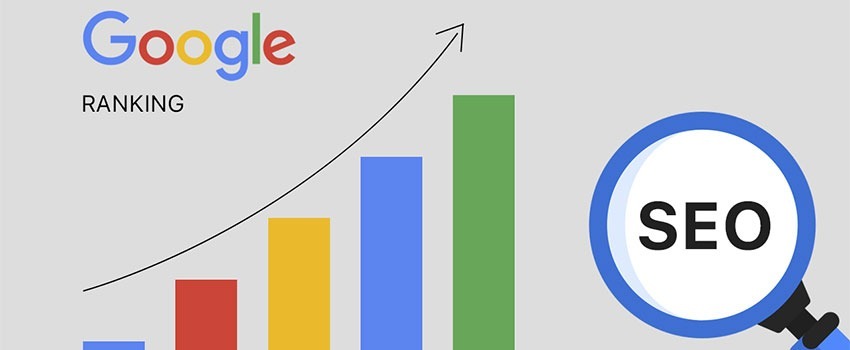Reasons Why Small Businesses Fail
Small businesses are generally considered to be the backbone of every economy. They employ more people and their cumulative revenue and impact on the economy far outweigh those of large businesses. But the rate of small business failure are equally higher. First, small businesses are more in number and so mathematically, there failure rate can be expected to be comparatively higher than those of large businesses.
In this post, we delve into the critical causes of most small business failures with a view to provide a guide to small business owners on how best to save their businesses and grow them to become successful. But let us start with the basics.
Further reading:
Harnessing the Power of Social Media Marketing in Business Growth
Own a business website to sail through a global crisis
What is a Small Business
The definition of small businesses have been shaped essentially by the size of invested capital, sales, size of its employee, and some other criteria. These are affected by the business environment and accounts for why different organizations and institutions have different definition of small businesses.
The United Nations Economic and Social Commission for Western Asia defines small businesses as non-subsidiary, independent firms which employ fewer than a given number of employees. This definition acknowledges that the required number of employees that define a small business varies across countries and regions.
The European Union sets a limit of 250 employees while the United States consider a small business as those employing fewer than 500 employees. The European Union further adds a ceiling to the revenue and balance sheets of medium, small and micro enterprises to not exceed EUR 43 million, EUR 10 million and EUR 2 million, respectively.
In Nigeria, a small business is defined as ‘an enterprise that has asset base (excluding land) of between N5million -N500 million and labour force of between 11 and 300’. This definition, provided by the Central Bank of Nigeria, incorporates the size and revenue factors to define small businesses.
Obviously, the bulk of businesses fall within the category of small businesses.
Further reading:
How Small Businesses Can Compete and Win Against Big Businesses on the Web
Best Social Media Marketing Tools for Small Businesses
Starting a Small Business, Key Factors to Consider
We have earlier covered this subject in detail in an earlier post. You want to read the post New Business Startup Considerations and Success Factors.
For our purposes, here is a summary of the key factors small business owners should consider at startup:
1. Location
The location of a business will affect its long-term survival and should be a key consideration when setting up one. In conducting a location analysis, small business owners need to consider factors like proximity to target customers, accessibility, security of the location and other relevant location factors that can affect patronage.
2. Finance
Small businesses often have challenges with raising funds mainly due to the fact that their credit ratings and those of their owners are often low. Quite often, they will not meet the security conditions stipulated by lending firms.
In many cases, SMEs are supported by government credit schemes to help them deal with the stringent conditions for fund raising.
3. Competition
Small businesses are often easy to setup and require no legal registration, in most cases. They are therefore found everywhere and often face competition from existing and new businesses. In setting up a small business, it is recommended to evaluate the performance of existing forms in the industry, especially those operating the same line of business that you intend to undertake.
You need to evaluate the profitability of existing firms by looking at visitor or buyer traffic, visible growth rate {in terms of stocks}, and you may need to talk with a few internal staff to evaluate the growth of the business.
Another very key consideration you should take seriously is how well existing companies and competitors are serving the interest of customers. If existing customers are not being served adequately, it will represent an opportunity. If the customer base is growing, that is also an opportunity.
Further reading:
SEO Tips For a Local Google My Business Page
How Your Communication Can Address Negative Customer Issues on Social Media
The Challenges Small Businesses Face
Small businesses face a lot of challenges and like the saying goes, it is an “easy come, easy go” business. Just as it is an easy business to start, so is it easy to shut down. Here are the common factors that cause small business failure.
1. Poor Funding
One of the most challenging problems of small and medium scale businesses is lack of funds that is necessary for expansion. Most small businesses are started with personal savings and some family support. These funding sources are never enough for the growth and expansion needs of businesses and so when funding challenges arise, it can be so severe and could force a business collapse.
2. Poor Patronage
Most business failures are attributable to low patronage and this factor equally affect large businesses. Poor patronage will eventually culminate into lack of funds, earlier discussed, and its consequential effects. This underlines the need to evaluate the decision to start a business and the need for a proper feasibility including location analysis, human traffic and competitor analysis before launching a new business.
3. Competition
Competition is a major threat to business success. Small businesses have been edged out of business because they locate within an area where a large competitor exists. On the flip side, a large competitor whose customer traffic exceed more than its capacity will be beneficial to smaller businesses within the vicinity.
For example, having a small guest house near a big hotel can pull traffic for the smaller hotel during peak hours when reservations are full. On the other hand, except for a lower price which a small guest house could charge, the big competitor can swallow up the customers of the small guest house and force it fold up.
So, in deciding to start a small business, you need to analyze how well existing competitors are serving the market, how much the market base is expending and what lapses exist in competitors’ offerings. The findings could guide your strategy and support your business growth.
4. Lack of Requisite Management Skills
Possessing some skill set can help you better manage your business, reduce your overheads and improve overall quality performance. For example, a small restaurant would face challenge if its cook resigns or absconds from duty. However, if the business owner is a skilled cook, he or she can immediately substitute the cook to keep the business running instead of hiring another cook on an hourly basis to keep the business going. The same situation would apply to several other business that rely on employee skills.
5. Poor Planning
Planning is essentially the process of deciding on goals and how to achieve them. It is important to take decisions on the sources of materials, employee skills, supply and distribution chain, how to deal with shortfall from key supply sources and alternative sources of supply, cost of distribution, customer density and regions with high customer density and the best and cost effective ways to reach those regions as well as all other factors than affect the operations and profitability of the business.
6. High Overhead Costs
Overheads can account for a significant amount of expenses incurred by small businesses. In developing economies, like Nigeria, where electricity, water supply and transportation systems are either poorly developed or inconsistent, small businesses, and large businesses bear significant costs to provide and maintain alternative power sources, bear the cost of water supply and spend a lot on transportation costs.
Generally speaking, economies with poorly developed infrastructure tend to have higher percentage of small business failure attributed to high overhead costs relative to economies with developed business infrastructure.
7. Government Policy and Economic Pressures
Government policies are generally intended to boost the economy. However, there are cases where economic policies, like monetary policies, trigger unexpected pressures on businesses. A good example of this will be the foreign exchange policy of the Nigerian government introduced by the middle of 2023. Following the change in government, the new government abolished the market control system in foreign exchange rates allowing market forces to determine the rates. The government also removed the subsidies on petroleum products thereby increasing the cost of energy. These sudden policy changes can significant affect small businesses, especially struggling businesses, and can lead to a business failure.
8. Debts
Ancillary to government and economic pressures is the problem of debt. Most small businesses are started with personal savings, borrowed funds and family support. In some cases, things do not just in the direction of owner’s predictions or anticipation, In some cases, businesses borrow for expansion or to fund a particular project. The debts can sometimes be a huge burden if the business is unable to service and repay them. The consequence is usually a business failure.
9. Changes Due to Innovation
Innovations are often a big threats to business survival and often times, there impact are unavoidable and irreversible. A new way to doing businesses, can pose a threat to existing methods especially where it comes with better output, speedy service delivery, and is cheaper. One good example will be the launch of digital printing machines which has seen an death of manual printings. Another common example is the decline in email communication following effective medium like WhatsApp. Yet, another example is the massive decline in the use of Point-to-Point radio communication for internet access installation which followed the innovation in mobile phone communications. The internet can now be found on mobile phones and shared via mobile hotspots, thus, rendering the traditional use of PCI Cards and radio communication obsolete.
Further reading:
How to build your website trust and credibility
How to Use LinkedIn for B2B Marketing
Digital Marketing Tips That Yield Big Results
How Small Businesses Can Survive
The business environment is dynamic in nature and revolutionary changes will continue to be a critical challenges that business owners should be alert to identify and cope with. In this section, we provide some useful advise to how businesses can cope with the causes of failures we have identified above and some business practices they need to imbibe in order to succeed.
1. Understand The Business Terrain Before Startup
Understanding your business before getting into it can be very helpful in anticipating the challenges of the industry and how to cope with them. Business owners need to identify their supply sources, the cost of running the business and how much the business environment supports the business. For example, the availability of essential utilities like electricity, roads and water supply and how much it will impact on running costs is something to take into consideration.
These pre-startup evaluation should also consider the location and competition. Understanding these variables and being able to predict their impacts on the businesses will better prepare the business owner for the years ahead.
2. Intelligence, Research, Training and Capacity Development
It is important for business owners to gather intelligence and work with information in order not to be taken by surprise. This skill requires continuous training and capacity development. As a business owner, you should have capacity to filter and process information that you receive and be able to use them to make meaningful decisions.
The key takeaway here is that innovations do not occur suddenly without going through a process. As developments on new innovation filter in, business owners should be able to process the information to know when to launch the new innovation for their advantages.
3. Adaptive and Strategic Competition
This requires businesses to not only look for new markets but to evolve entirely into new environments that offer opportunities. In this respect, the internet is a bold and unlimited opportunity. Taking your business does not only offer an opportunity for expansion, it also takes away the cost of expanding floor space, rent, manpower needs and several other costs. The internet makes the entire globe your market and can incredibly bring you great success and revenue to boost your real world expansion.
4. Seek Government Support
Small businesses are the bedrock of every economy and employ more people than corporations. Governments therefore do not only provide the basic and necessary infrastructure to support small businesses, they also provide support in forms of finance, materials, technology, and management support through agencies and parastatals. It is recommended that small businesses should explore these opportunities by contacting the relevant government agencies to learn about the available support and incentives.
One way to go about this is to access the relevant government websites to learn about on-going and up-coming programs so as to prepare the necessary documentation that qualifies you for the program.
5. New Markets
Creating new markets for your business is one way to support its growth. As mentioned earlier, while discussion adaptive and strategic competition, small businesses must open up its markets in order to grow in size and profit potential. One way to enter into new market is to explore the power of the internet. You can begin by creating a website for your business, promote the website and also take advantage of SEO (Search Engine Optimization} for its organic growth.
Further reading:
How to Set Up Your Personal Blog With Joomla
Leverage your Branding for eCommerce Growth
8 Strategies to Help eCommerce Marketing Success
Final Words
Small businesses are the simplest businesses anyone can start. It usually does not require any legal requirements and regulations are very minimal. However, small businesses require diligent management to be able to compete and grow to become large employers. They require effective planning, financing and decision making. Because of the challenges small businesses face especially in developing economies, they require support in forms of funding and technical.
It is recommended that small business owners should develop the necessary skills required to run their businesses, understand the business environment before they start, take advantage of government incentives, monitor the environment for revolutionary innovations and expand their market reach amongst others.













